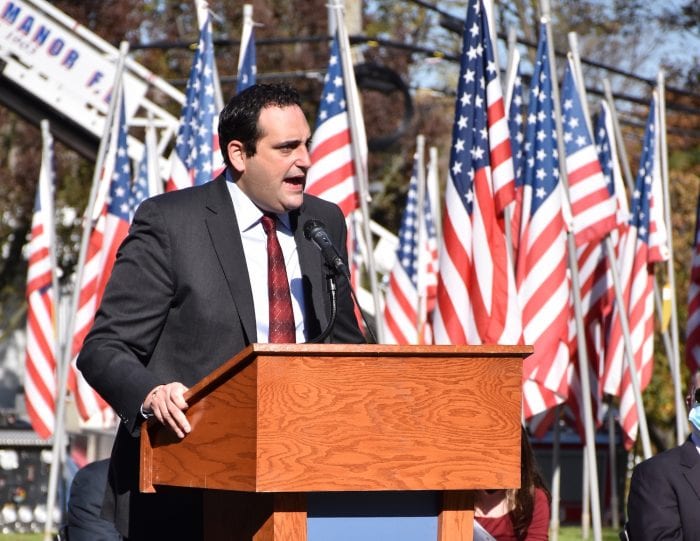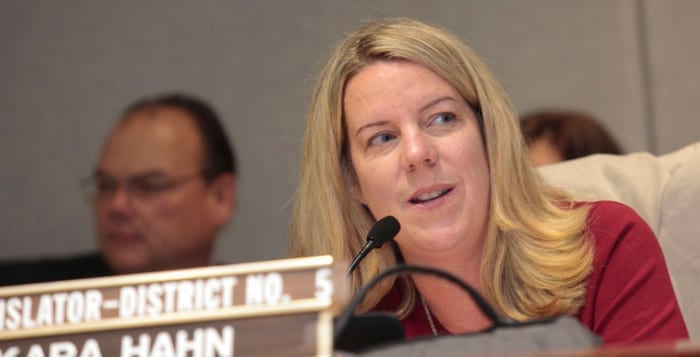Last week the Town of Huntington released a report that cleared town Supervisor Chad Lupinacci (R) of any wrongdoing after an investigation that looked into allegations of sexual harassment by Lupinacci directed toward an unidentified lower-level town employee.
The investigation was conducted by the New York City-based Jackson Lewis law firm and a memo to the Town Board members came from Diane Krebs. In the report, Krebs said she was unable to substantiate the sexual harassment allegations.
“However, I believe that individuals were untruthful during the investigation process or refused to respond to my questions, which impeded my ability to obtain the whole story,” she wrote.
According to the report, the law firm was first contacted by an unidentified person that said Lupinacci invited a lower-level employee for drinks at his house at 2 a.m. When the employee declined, the supervisor said the person was “ungrateful.” The same account came to the law firm from members of the Town Board.
There were other text messages in the investigation discussed where Lupinacci allegedly would text in the middle of night asking to come over, but there were no sexual advances in the texts, according to the report.
Various people were interviewed during the law firm’s process, and names were blacked out in the redacted report.
Huntington Republican Committee chairman, Tom McNally, in a press release, accused town Councilwoman Joan Cergol (D) of using “her position on the Town Board to instigate the investigation against a political adversary based on a fourth-hand rumor without a shred of evidence. Every person involved in the alleged behavior denied the events ever occurred, including the supposed ‘victim.’ No complaint was ever filed yet a year-long investigation into a rumor followed.”
The town was charged nearly $47,000 by the law firm who prepared the report for investigating the allegations.
“The best the lawyer can say is she thinks the people she interviewed are withholding information,” McNally wrote. “Perhaps that’s her perception but it’s also an old lawyers’ trick to keep an investigation open.”
McNally said the incident will have long-term effects, and he suggested Cergol reimburse the town for the $47,000 or resign.
Cergol said the Town Board initiated the investigation last year with a 5-0 vote, including two Republican councilmen.
Responding to the Huntington Republican Committee’s press release, Cergol said, “McNally has to be reading the Disney version of this investigative report because by anyone’s read and estimation of it, there is no fairytale ending.”
She added that the chair’s statement was “a paper-thin political ploy intended to distract from the investigator’s disturbing conclusion of being ‘stymied’ by uncooperative witnesses.”
Lupinacci is currently facing sexual harassment allegations in a separate civil case. Brian Finnegan, the supervisor’s former legislative aide and chief of staff, filed a lawsuit in 2018 with the Suffolk County Supreme Court.









